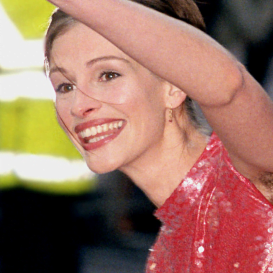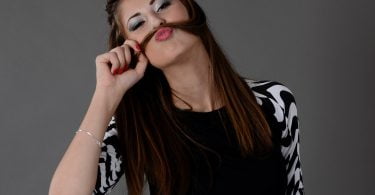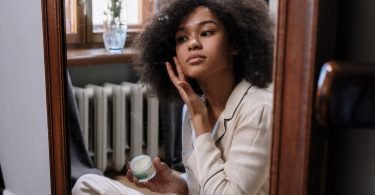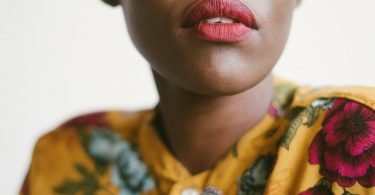Let me take you on a trip back in time. It was the beginning of November, last year, and I was about to embark on a journey that would change me as a person. I don’t mean some gap year-esque journey of self-discovery; my journey was rather more metaphorical, beginning with just one small, simple act of rebellion. Inspired by No-Shave November (known as Movember here in the UK), I had decided to stop getting rid of my body hair for one whole month.
Not wanting anybody to feel like I was impinging on Movember’s very noble cause – raising money for men’s health programs and general awareness of men’s health issues, thus ‘saving and improving the lives of men’ – by making it about me, I decided to keep this decision to myself as a personal body image project. However, one year and a surprisingly large positive impact on my life later, I feel like the hairy subject of female ‘grooming’ is well worth talking about.
What’s the big deal?
 For me, the core of the issue is this: until I made a deliberate and conscious effort to change it, I lived for many years believing that there was something fundamentally wrong and disgusting with my body’s natural way of being. What’s more, I would wager that the majority of women in this country feel the same way that I did then, and that makes me angry. Women deserve to feel good about themselves just the way that they are; people of any gender deserve this. What makes me even angrier is the way that advertisers prey on and profit off of women’s insecurities, carelessly encouraging us to feel worse about ourselves for their own financial gain. This is especially clear if we look back to the first instance of advertising for hair-removal products in 1915, pictured left, which describes women’s underarm hair as ‘objectionable’.
For me, the core of the issue is this: until I made a deliberate and conscious effort to change it, I lived for many years believing that there was something fundamentally wrong and disgusting with my body’s natural way of being. What’s more, I would wager that the majority of women in this country feel the same way that I did then, and that makes me angry. Women deserve to feel good about themselves just the way that they are; people of any gender deserve this. What makes me even angrier is the way that advertisers prey on and profit off of women’s insecurities, carelessly encouraging us to feel worse about ourselves for their own financial gain. This is especially clear if we look back to the first instance of advertising for hair-removal products in 1915, pictured left, which describes women’s underarm hair as ‘objectionable’.
According to Cecil Adams of the Straight Dope, who cites a journal article by Christine Hope, ‘U.S. women were browbeaten into shaving underarm hair by a sustained marketing assault that began [with this advert] in 1915’, whilst the anti-leg hair campaign didn’t come until later, and ‘was more fitful’. In other words, modern women’s insecurities about our body hair were quite literally created by advertisers for the purposes of selling us products that – until then – we didn’t even know we needed.
Nowadays, women’s beauty adverts are more subtle. They have a feel-good focus, suggesting that using their products will enhance our lives by making us feel beautiful and confident.
Sounds great right? I think it does. It’s a wonderful message, and I certainly don’t think that there’s anything wrong with women choosing to remove their body hair because they enjoy that wonderful smooth feeling of freshly-shaven skin.
Unfortunately, people are bombarded with beauty adverts like these all the time, which changes their effect somewhat. This constant, near-inescapable web of media and advertising combines to make people feel that for women, not only is being ‘beautiful’ of paramount importance, but also that there is only one true standard of beauty, which the media dictates to us. For example, the 2013 Gillette Venus advert for their Embrace razor, shown above, suggests that having smooth hairless skin is an essential part of female ‘beauty’. The unspoken and more damaging message hidden behind this is that if women leave their body hair as it is, then they cannot be beautiful. Just as the 1915 advert did, advertisers today are still telling women that their body hair is ‘objectionable’; they’re just being a lot less blatant about it.
A matter of choice
Don’t get me wrong: I have nothing against people choosing to remove, trim or otherwise alter their body hair. I don’t think that going ‘natural’ as I am currently doing (I haven’t altered my body hair in at least 3 months) is inherently better. Just as a woman with hairy armpits should not be considered bad or disgusting, neither should a woman who chooses to go hairless. What I take issue with is the societal stigma that makes a lot of women feel like hairlessness is not a choice, but an obligation. I would like us to live in a world where people of any gender can feel free to do whatever they want with their body hair without fear of judgment. This is what my no-shaving experiment did for me.
A positive impact on my life
Perceptions can’t be changed overnight, so for much of that first month, I continued to feel that my body hair was disgusting. The only difference was that I was choosing to leave it there anyway. However, this in itself actually caused a big positive change in the way I interact with the world; it made me realise that adhering to societal norms of ‘beauty’ isn’t actually as important as I had been led to believe in my teenage years. This also made me more confident to just be myself in all other aspects of my life. And slowly, over the course of that month, I started to become comfortable with my armpit hair, thinking about how natural it actually looked. After a while, it just felt right. It took me longer to make peace with my leg hair – probably because I had been teased mercilessly for it in my adolescence – but I’m there now.
In short, the two biggest benefits to this extended period of not shaving, which I would hope people of all genders could be able to experience, are as follows. Firstly, it made me finally feel comfortable with my body’s natural way of being, making me a happier and more confident person. Secondly, it allowed hair removal to become for me what it should have been all along: a personal choice, not an obligation. I may well choose to shave or trim my body hair again in the future, but when I do, I’ll be doing it just for me, and that’s the way I think it should be.









